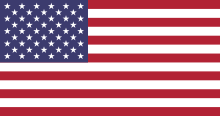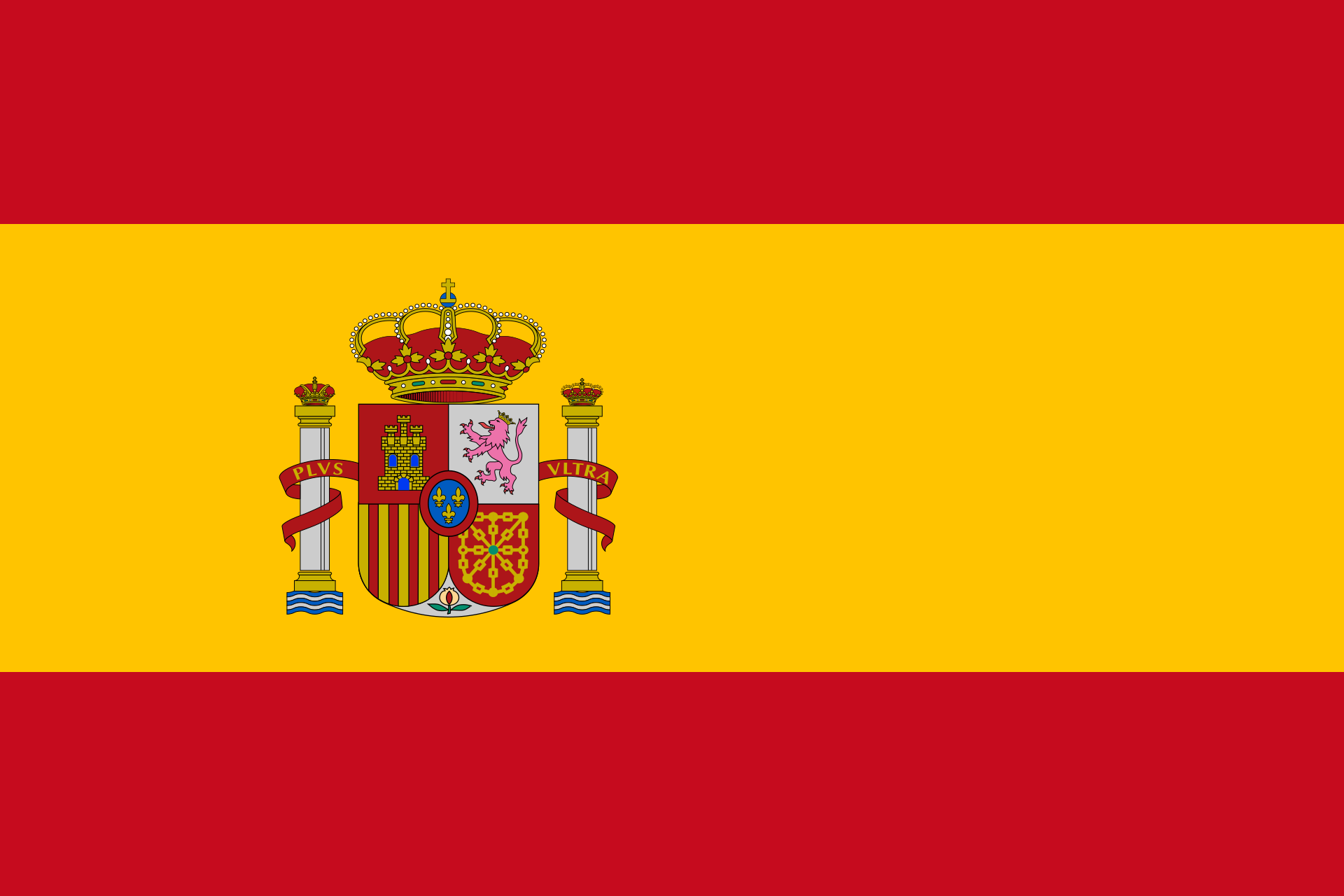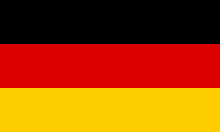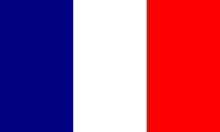Technology Education
Named after the founder of physical chemistry and Nobel Prize laureate Wilhelm Ostwald, the Wilhelm-Ostwald-School has been committed to the scientific and technological education of its students since its founding in 1985. The school's enhanced mathematical and scientific profile is reflected, among other aspects, in additional lessons, interdisciplinary teaching, and a comprehensive full-day program. Our TSA Chapter is also a proud part of this profiling.
The more you demand from a student, the more he will be able to accomplish.
- Wilhelm Ostwald
Click on the different parts of the river to find more about our technological education.
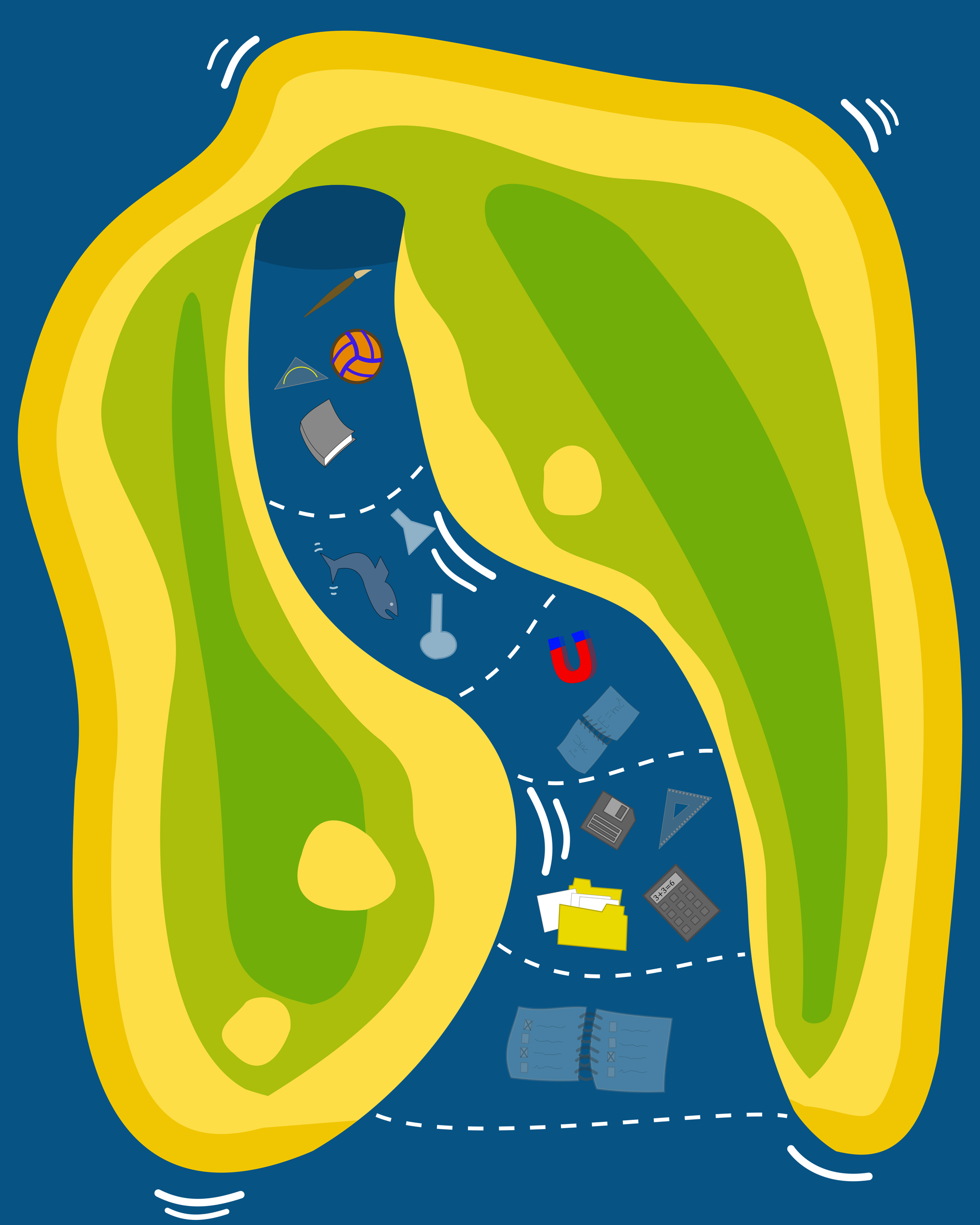
To learn more about our school and how to apply, you can go to our school website (German) and take our virtual school tour.
Full-Day Program
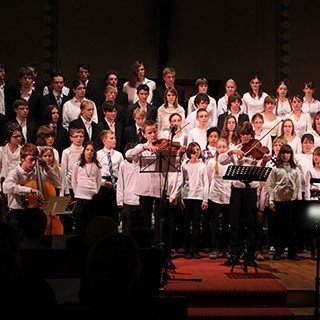
The Wilhelm-Ostwald-Gymnasium in Leipzig has the status of an all-day school. This means that even after the end of the lessons, numerous offerings from a wide range of areas are available for the students and these are supported financially, materially and in terms of personnel. Grades five to ten have a school closing time of 1:45 p.m. every B-week. Starting at 2:00 p.m., the all-day programs take place every day. There is the obligation to take at least one GTA, but there are also always students who take up to 5 different offers.
Due to final exam stress, students of the grades eleven and twelve do not have to participate obligatorily. Adding to that, it is not possible to end classes at 1:45 p.m. every single day during the b-weeks. Despite that, there are possibilities of participation. The TSA sittings are part of the extracurricular activities as well, although the work on the projects, of course, takes place out of school. The TSA meetings, just like the choir rehearsals take place at 3:35 p.m. so that all members can participate.
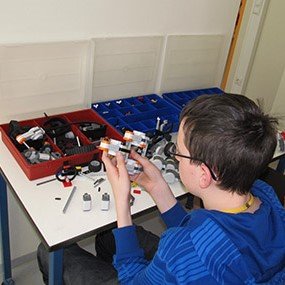
The variety of offerings is impressive: There are sports GTAs like basketball and soccer, as well as foreign languages like French. In addition, there are also opportunities to get involved with things that have less to do with school, such as graffiti and beekeeping. In addition, there is a school choir, the school newspaper and several offers for promotion and demand in each mathematical-scientific subject. In the process, students acquire additional knowledge, new skills and abilities and have fun with the projects. Since attendance is mandatory once enrolled, continuity of learning is also ensured.
Example Activities

Biology & Chemistry
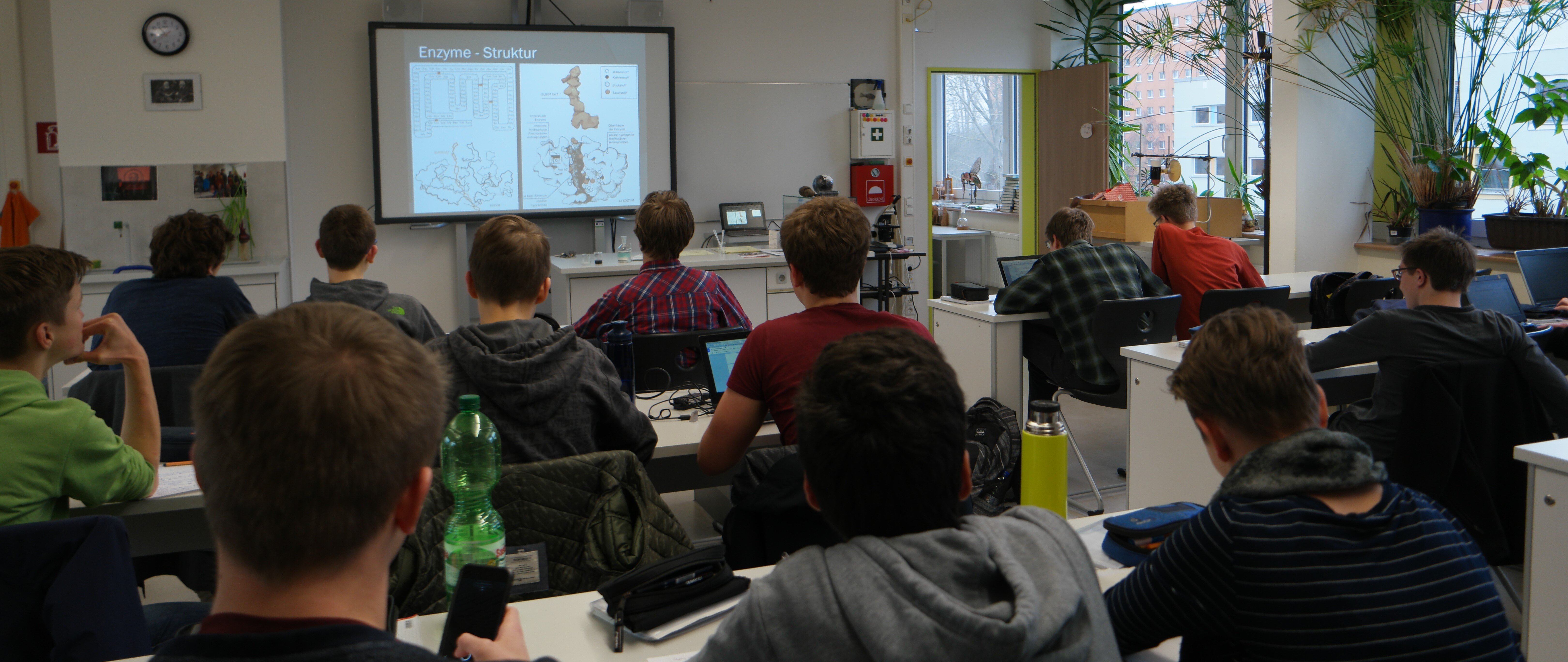
Biology
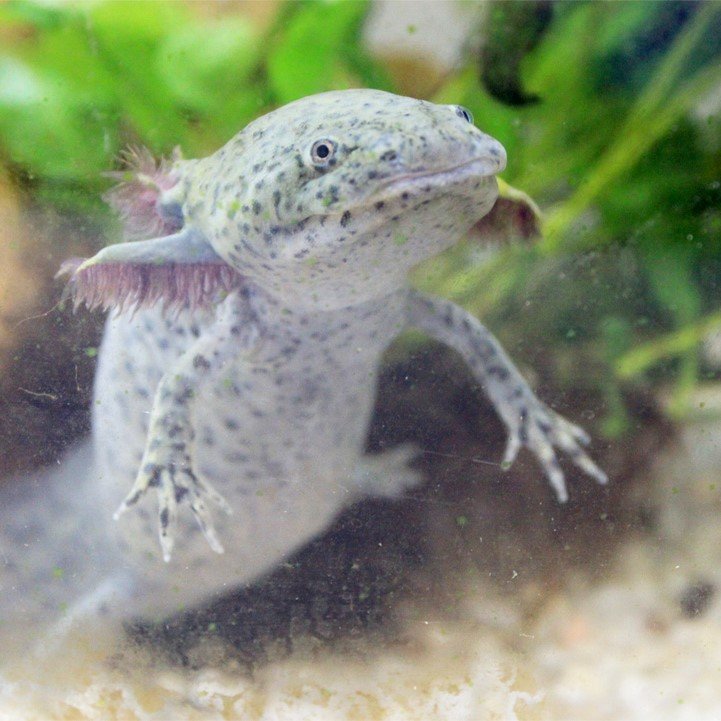
The Biology section has the possibility to choose from various book collections (two of our biology teachers are actually involved in a number of books) as well as from an extensive library of models. Digital microscopes as well as a digital lens with direct PC connection are also available, while the laboratory houses axolotls, degus, turtles, various species of fish and stick insects, among others.

The quality of this concept is reflected in the successes and high numbers of participants in competitions, with many students participating in national and international competitions throughout the school year, such as the "National Biology Competition" organized by the University of Toronto. One of the most well-known achievements is winning the gold medal at the 2008 International Biology Olympiad in Mumbai by Thai Le Tran, a graduate of our school as well as Ostwald TSA. Other examples include several medals at the 2013 International Junior Science Olympiad in Pune, India, earned by Nik-Angus Engwer and Johann Lieberwirth (also a former TSA member). The knowledge that students acquire during their studies in these subjects promotes TSA project work, especially in subjects such as biotechnology design that require both biology and chemistry.
Chemistry

At a school with an in-depth science profile, chemistry naturally also plays a major role. Chemistry is taught as early as the 7th grade, and students with increased interest have the opportunity to expand their knowledge in the field of chemistry beyond the curriculum in the scope of elective compulsory education (WOU).
To enable all students to experiment and learn individually, the Wilhelm-Ostwald-Gymnasium has three chemistry laboratories, which are among the most modern and extensive laboratories at Leipzig schools.
The teaching staff also supports the students in every way. They gladly act according to Ostwald's famous quote "The more we expect the student to do, the more he will be able to do."
The success of this resolution is shown by the numerous registrations and successes in the International Chemistry Olimpiad.
Physics
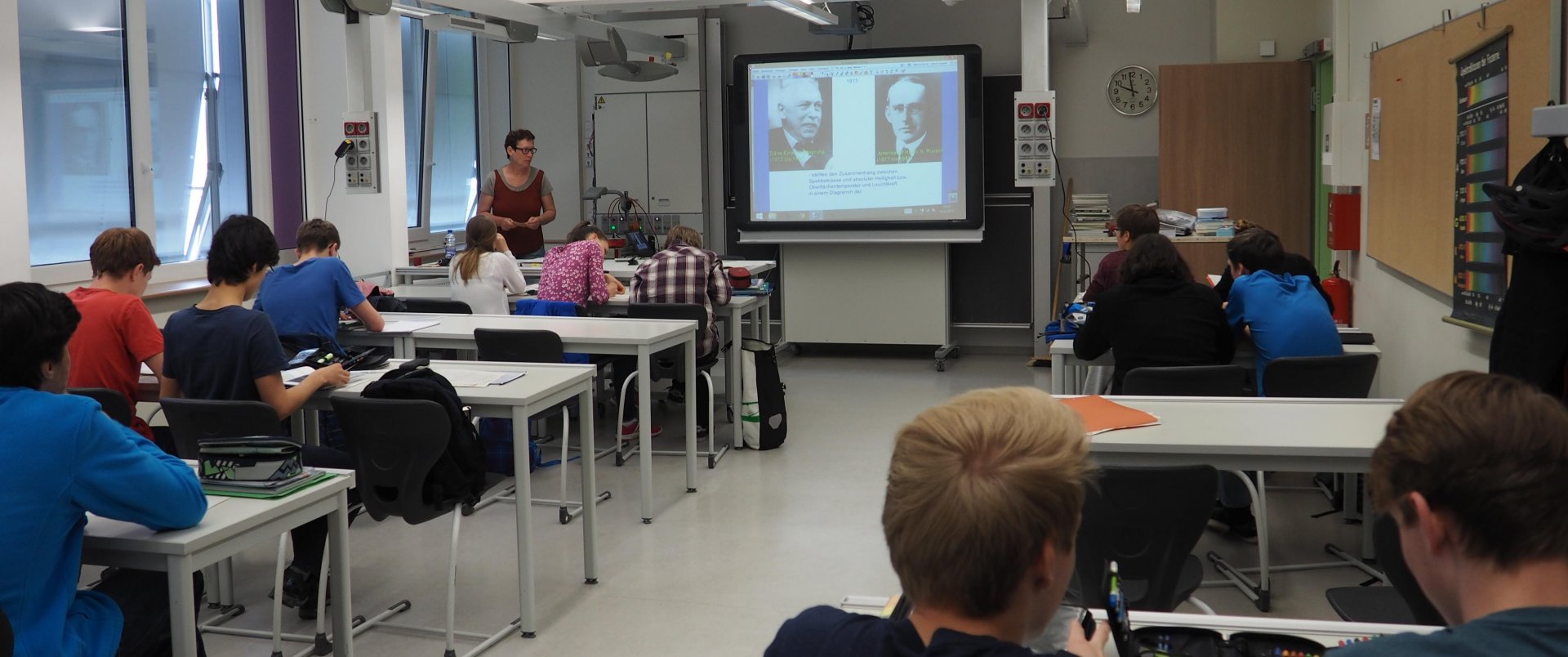
Physics is a natural science and, like mathematics, computer science, biology and chemistry, is given special support at our school. There is one more hour of physics taught per week in both the sixth and ninth grades of secondary school than at the regular Gymnasium. In addition, the subject can be chosen as part of the elective compulsory education, whereby additional knowledge not included in the curriculum can be acquired.
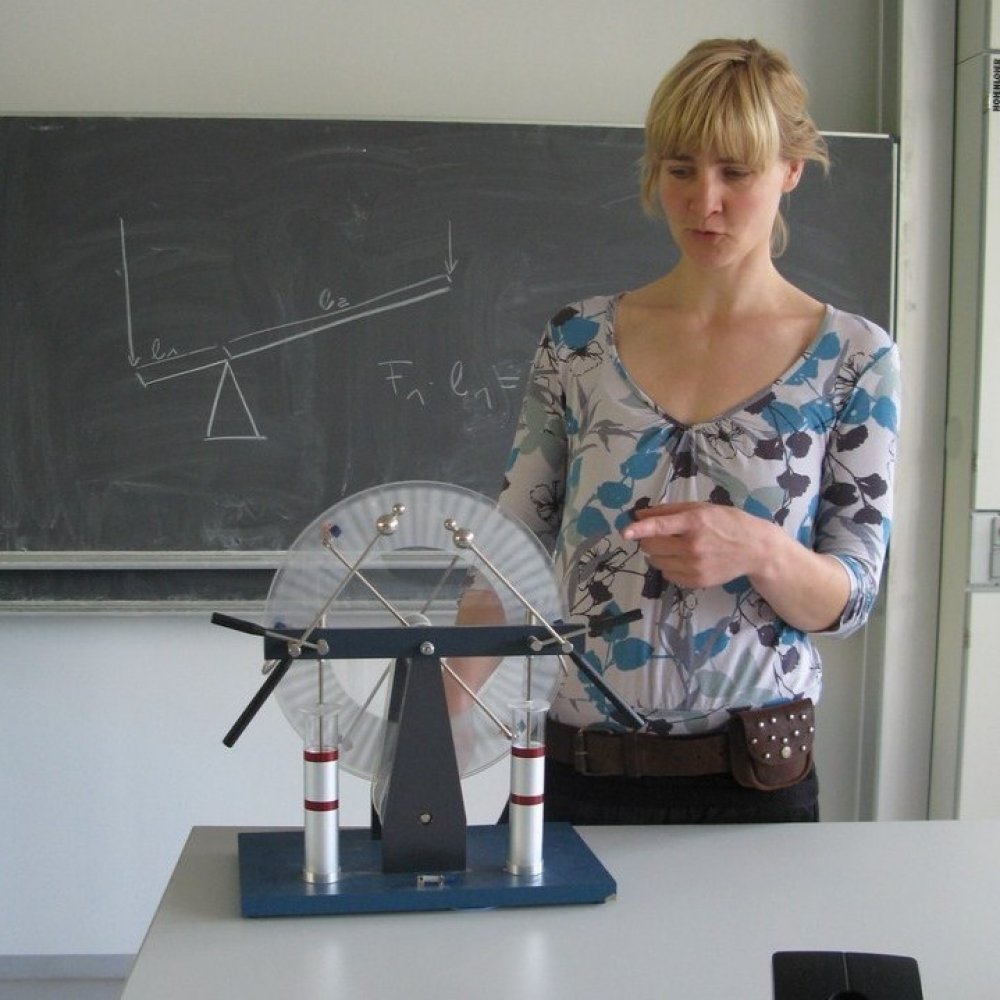
The school has three physics rooms, each with its own power supply. Countless student experiments can be carried out in these rooms. Countless components are available for this purpose. In addition, there is an electronics cabinet in which each seat is equipped with a PC, a voltage source, an oscillator, as well as plug-in boards and various components. Here, more sophisticated and extensive experiments can be carried out by the students. During the ninth grade, electricity is taught there separately for half a year instead of computer science. The fact that the focus is very much on practice is also evident from the fact that a physics internship takes place every school year. Here, students can apply what they have learned in the experiments and practice recording their results in a professional manner.

Some all-day programs (GTAs) also deal with physics. These include not only the Physics Achievement Centers and the Competitive Preparations, but also Automotive Technology and the Robotics GTAs. The WOG has a telescope for astronomical observations and a weather station.
Students of the Wilhelm-Ostwald-Gymnasium successfully participate in various competitions in the subject area every year. The school can proudly claim many national and international titles. These include gold medals from the Saxon, German, European and international Physics Olympiads.
Current successes can be found on our school homepage.
Mathematics & Computer Science
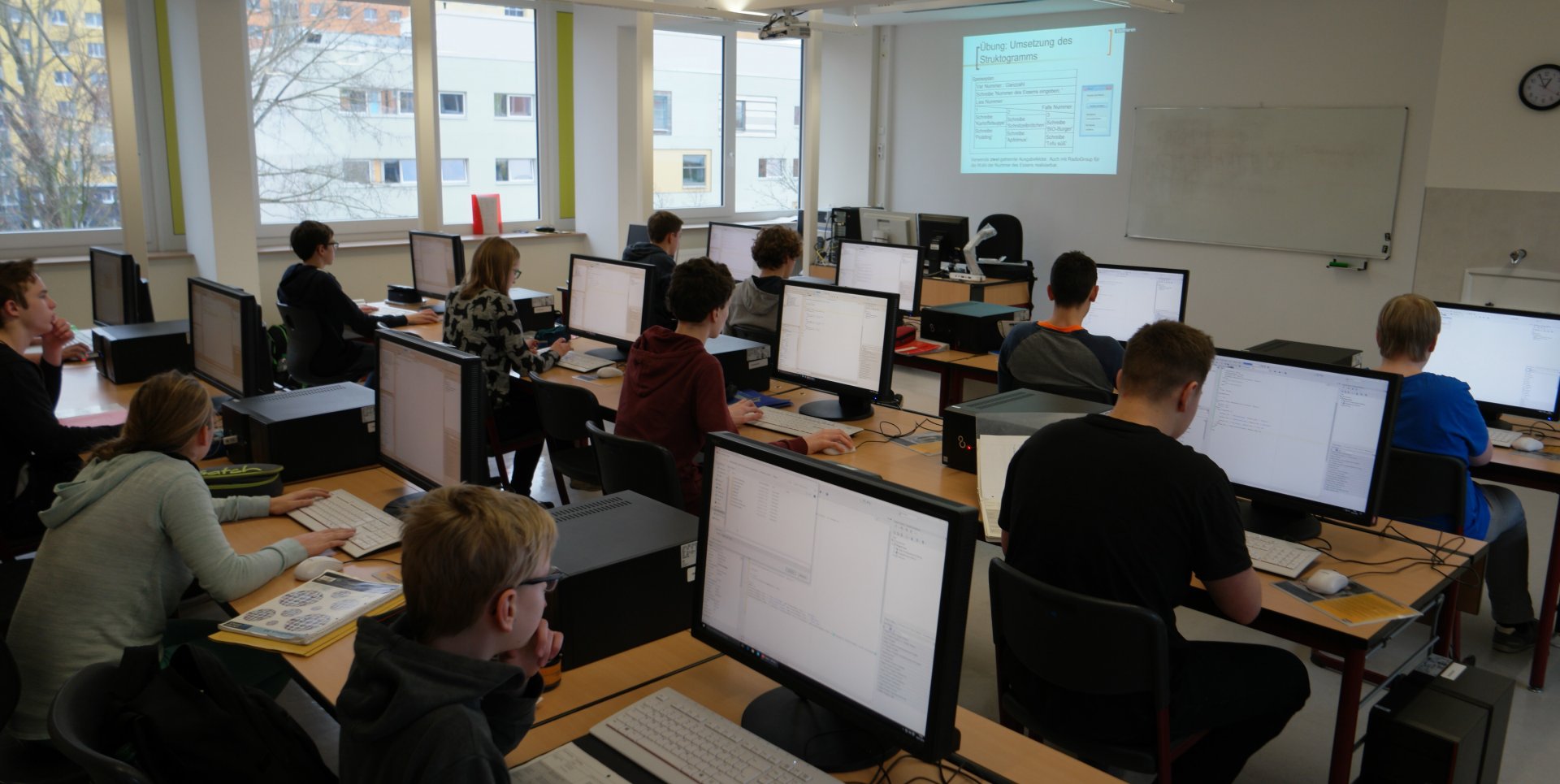
Mathematics and the very closely related subject of computer science are strongly encouraged at our school. All students in fifth through tenth grades have additional mathematics instruction as well as the opportunity to choose mathematics and computer science instruction from the range of elective subjects.
The school places high demands on students, as participation in the National Mathematical Olympiad is not only recommended, but mandatory through 9th grade. To ensure student success, there is competition-specific support to help students solve problems typical of this type of competition. With seventeen winners at the national level, Wilhelm-Ostwald-Schule is one of the most successful institutions participating in the Mathematical Olympiad. However, other competitions and events, such as mathematics camps, also spark students' interest in mathematics.
Another feature is that advanced mathematics courses are mandatory for 11th and 12th graders, which is intended to provide a foundation for study in the sciences, as well as being the logical successor to the intensified education from fifth through tenth grades.

Computer science is also emphasized to a comparatively lesser extent: the school is equipped with three computer labs, laptop sets, thin clients and projectors. Computer education begins in fifth grade but is taught through tenth grade, so students can eventually work with HTML, Java, and Python. Of course, the number of hours taught is not as high as in mathematics, since mathematics is the basis of computer science and not the other way around - nevertheless, Wilhelm-Ostwald-Schule is one of the few schools in Saxony that offers a comprehensive computer science education for secondary level 2. This also qualifies the students for success in competitions, such as the National Computer Science Competition.
Additional Education
Compulsory Elective Subjects
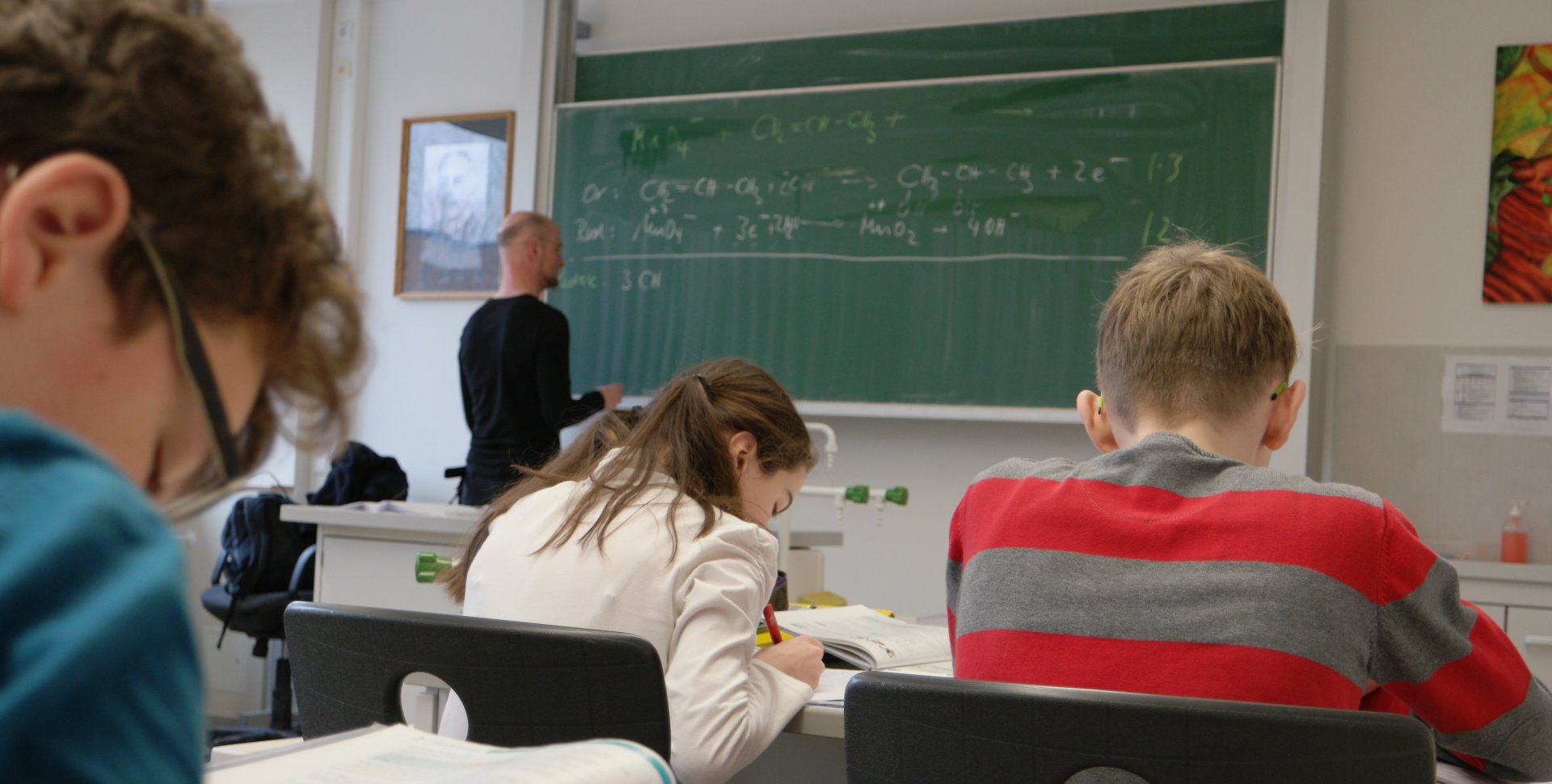
Since the 2005 / 2006 school year, Wilhelm-Ostwald-Gymnasium has had a special form of support for mathematics and science subjects, the optional compulsory lessons. Students in the 5th and 6th grade have an additional lesson in mathematics every week, in which, however, not the normal subject matter is taught, but additional knowledge about mathematics in science and practice that is not included in the normal curriculum.
Electable Classes
-
calculateMathematics
WOU Math covers topics such as graph theory, number games, Rubik's cubes, linear optimization, complex numbers, chaos, and fractals.
-
codeComputer Science
In WOU Computer Science, experiments are conducted with microcontrollers, the programming languages JavaScript as well as Java are covered, and theoretical foundations for algorithms and object orientation are laid.
-
rocket_launchPhysics
WOU Physics covers flying, ray and wave optics, and thermodynamics, engine technology, celestial mechanics, and advanced electrical circuits.
-
fingerprintBiology
In WOU Biology, students explore microbiology, health and wellness, aquatic science, exercise physiology, or zoology.
-
scienceChemistry
WOU Chemistry covers separation methods, fire, gases, glass, and electrochemistry / quantitative analysis or pharmaceuticals.
When the students are then in the 7th or 8th grade, they can choose their own additional lessons. Each child chooses 2 subjects from the range, which includes mathematics, physics, biology, chemistry and computer science. In grades 9 and 10, the system then becomes more intensive: one can only choose one WOU subject, but then has two weekly lessons in that subject.

The school places high demands on students, as participation in the National Mathematical Olympiad is not only recommended, but mandatory through 9th grade. To ensure student success, there is competition-specific support to help students solve problems typical of this type of competition. With seventeen winners at the national level, Wilhelm-Ostwald-Schule is one of the most successful institutions participating in the Mathematical Olympiad. However, other competitions and events, such as mathematics camps, also spark students' interest in mathematics.
The advantages of the system are obvious: talents are recognized early and particularly challenged. Since the subjects are chosen anew every year, even a sudden change of interest, as often happens with young people, is not an obstacle but an opportunity. And because of the wide range of courses on offer, there is something for everyone.
Interdisciplinary Teaching Weeks
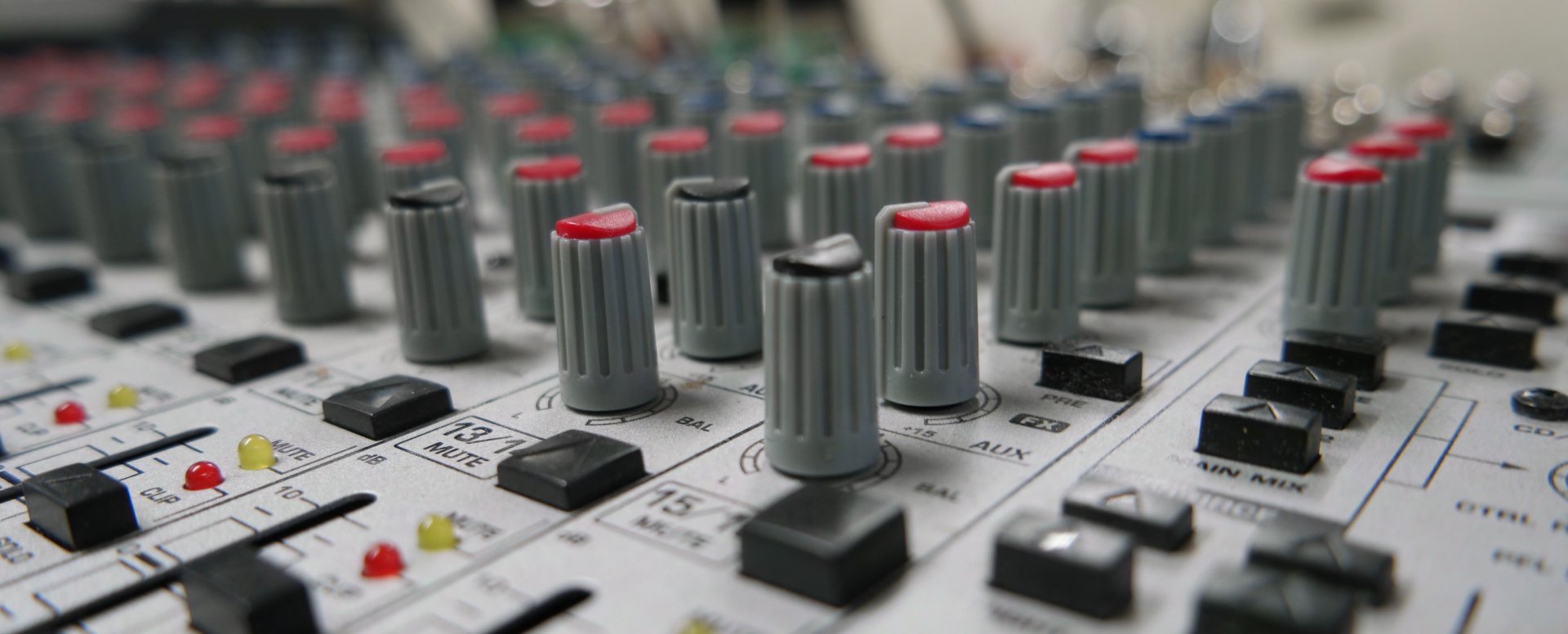
Another special feature of our school is the interdisciplinary lessons that take place for one week each year in secondary school 1. This involves combining at least two subjects that actually do not go together very well, such as physics and history, or biology, ethics and chemistry, and dealing with a topic that serves all areas. In the examples just given, the subjects were the history of aviation and drug prevention. The advantage is that students learn early on to look at things from different perspectives and to recognize and apply complex relationships. These skills are also significant for project work at TSA.
